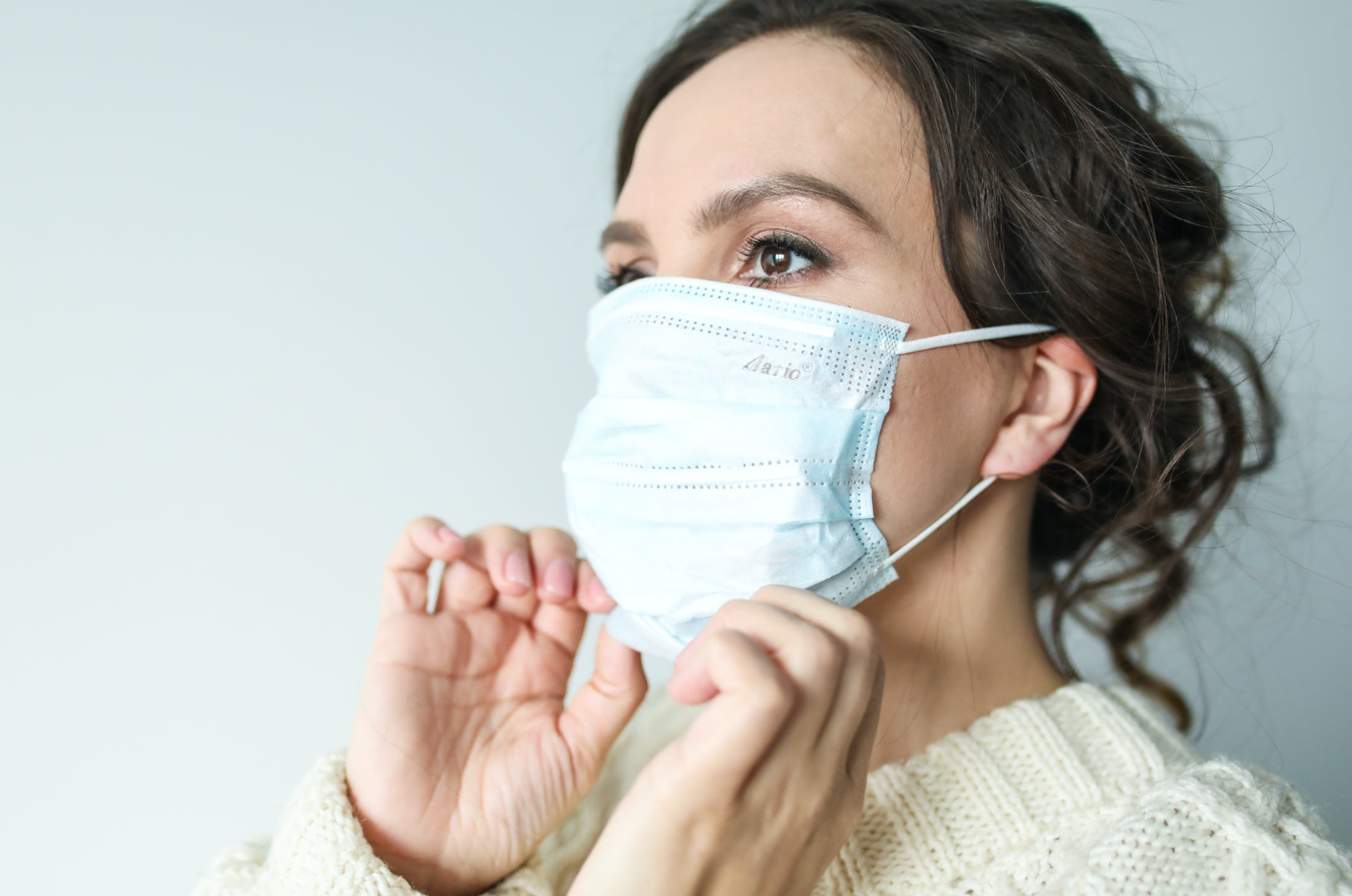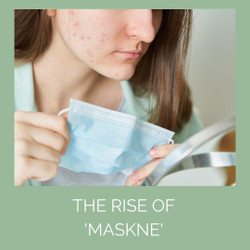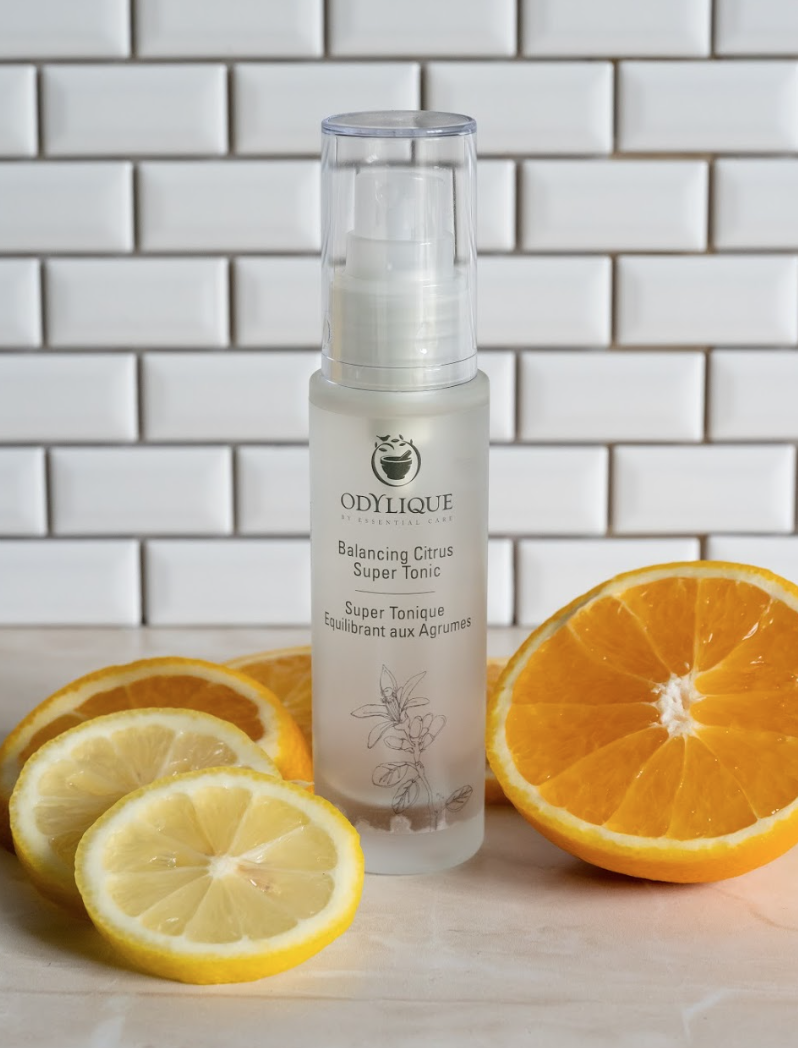
With the introduction of face masks also comes the appearance of 'maskne' - a well-coined phrase to describe breakouts of acne due to us covering our face much more. Less has been said about how face masks can also cause eczema flareups. The reasons are similar - the skin can ‘breathe’ less, has less sunshine exposure and is more prone to collecting daily grime.
So here are our suggestions to minimise flareups for the most sensitive skin, while staying safe:
Cleanse More Often than Usual
Wash your face thoroughly at least twice a day: In the morning, ideally as soon as you get home and remove your mask, and then again at night. It is also worth using a natural skin tonic to help remove last traces of dirt and balance the skin. Odylique Balancing Citrus Tonic is well lauded by those who are prone to spot breakouts
Avoid Harsh Chemicals in Skin Care
Use gentle skin care in general, especially as you are washing your skin frequently. Avoid facial cleansers with sulphates, harsh preservatives and synthetic fragrance. Similarly, steer clear of masks (of the cosmetic sort) that use peeling ingredients like salicylic acid. If you like a deep cleansing mask, opt for one with more gentle purifying ingredients like a natural clay mask.
Choose Moisturiser Carefully
If your skin is prone to eczema, moisturise well after cleansing, particularly around areas that the mask can rub. Under your nose / around nostrils can get quite flaky with a mask rubbing for long periods of time. Use natural moisturiser that will absorb fully into the skin rather than sitting on it. Ingredients to avoid are mineral oil, petroleum jelly, liquid paraffin and silicones. Try Odylique’s Repair Lotion which many customers with all kinds of skin irritations claim helps them.
Wear Masks Made from Natural Materials
Use 100% cotton or bamboo face masks – you can make gorgeous ones by recycling an old t-shirt or other cotton clothing – here’s a DIY mask how-to video from Love Crafts – with plenty of other ideas on the side links if you prefer a different shape. Note that the mass-produced surgical face masks can have coatings that aren’t allergy friendly. And synthetic materials form a stronger barrier, trapping in heat and risking irritation from pores that can’t breathe
Use Washing Powder for Sensitive Skin
Wash the face mask after each use with an eczema-friendly washing powder. Harsh detergents will bother most touchy-feely skin, but more so on the face where the skin is delicate and sensitive
Use a Soothing Natural Cream

If you are managing a breakout, apply a skin-friendly lotion that has plenty of natural antibacterial ingredients such as zinc oxide.
Odylique Spot on Serum has many restorative ingredients and is light and non-greasy. Repair Lotion is equally soothing if you prefer something richer.
'My adolescent daughter was having some acne issues. I bought the tea tree cleanser and the spot on serum for her. Now my older daughter uses the serum for her trouble spots, when they occur. The girls swear by this product!' - LeAnne, Odylique customer
Wear Minimal Good Quality Makeup
The same goes with makeup – go natural. Minimise what you put on to keep your pores clear, and if you do need to cover up, avoid anything with mineral oil or silicones. Odylique’s organic concealer contains a base of skin-friendly botanicals plus zinc oxide to provide extra protection against breakouts

Mask Free Time When It’s Safe
Take some time each day to be safely outdoors without a face mask. Whether it’s in the garden or on a balcony, your skin will be grateful for a ten to fifteen minutes of sunshine exposure to help restore vital vitamin D levels. Vitamin D hasn't just been proven to have a beneficial effect on the skin (many with skin conditions are found to be deficient!), but it's also been shown to be a key component of healthy immune function.
Need more advice?
If you’d like any more advice please do email us – customercare@odylique.co.uk, add your question as a comment below, or call 01638 491022 – we’re here to help!


